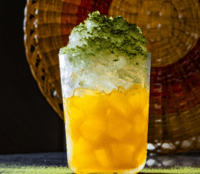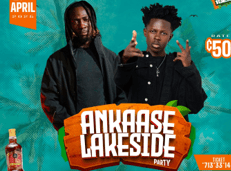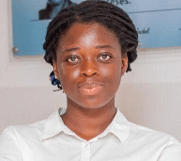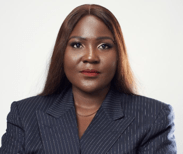A Linguist; a Poet; a Word-smith; a Rapper; a Social Entrepreneur; a Record Label Executive, a Cultural Icon; a Fashion Trendsetter; The Boy Next Door; a Scholar; a Thought Leader; an Author; a United Nations Dad; The Rap Doctor; Mr. Versatile; a Husband; a Father; a Teacher… A star studded ensemble? Yes. All these are embodied in one man; one man for whom we have run out of superlatives to describe.
Born Kwame Nsiah Apau in Kumasi, the middle child of a teacher and an accountant, better known to us as Okyeame Kwame, the multi-faceted creative has transcended eras, shattered glass ceilings and redefined the arts. He has bridged the gap between entertainment and business in a manner never before seen on our shores and longevity – two decades and counting – points to his enduring appeal across various divides.
From the time he burst unto the music scene in the mid-90s, he has had a knack for separating himself from the rest of the pack – not just in a bid to be different; he is different. Weaving rich Akan poetry and imagery over a diverse range of musical instruments, Okyeame Kwame has been at the fore of projecting Ghana to the world.
Dedication to his primary craft was duly recognized in 2009 as he won the Artiste of the Year award; one of many deserving accolades for the Masters of Marketing Strategy graduate of the University of Ghana Business School (UGBS). As testament to his aforementioned enduring appeal, he has been brand ambassador for major corporations such as MTN Ghana, Coca-Cola and GT Bank, Water Aid, TVET, Insurance Awareness Coordinators Group Advocate and a host of others.
He has also served in other capacities such as ambassador for the African Union (AU); Made-In-Ghana ambassador for the Ministry of Trade and Industry; ambassador for Junior Boys Mentoring to equip young people grow into proper adults. Due to his charity works over the years, in shining light on Hepatitis B, he was made an ambassador for the disease by the Ghana Health Service.
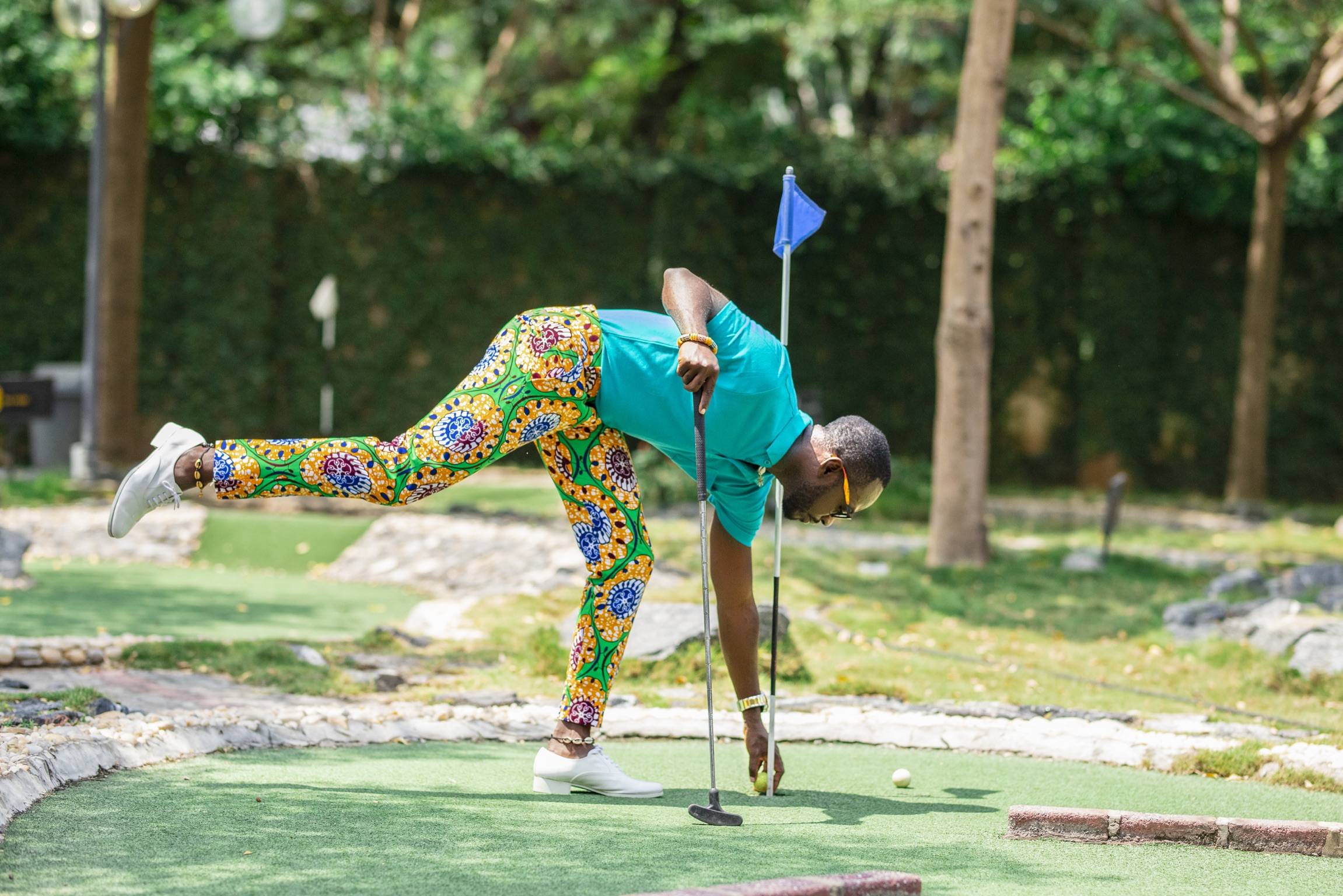
Mayor of the city of Cincinnati, John Cranley in Ohio USA on November 21, 2016, presented Okyeame Kwame with a Key to the City and declared 17 November each year as ‘Okyeame Kwame Day’ to solemnise his status as International Cultural Ambassador to the city. Kwame was also honored on February 3, 2017 by the Chartered Institute of Marketing Ghana with the status of an associate co-opted member for his professional use of marketing in the creative arts.
He is a UNICEF Super Dads Ambassador with the likes of David Beckham and Hugh Jackman. His selection as ambassador comes on the back of his recognition as a father with an enviable, amazing relationship with his children which had taken centre stage in the media over the years. He is currently a climate change ambassador for international environmental NGO, Solidaridad and world bank.
What makes him tick? How has he maintained longevity? How does he juggle so many engagements effectively? How important is branding? When should a rebranding occur?
From the studio to the boardroom, all the answers to these questions and other nuggets of branding wisdom were posed to Okyeame Kwame by two of B&FT’s journalists, Ebenezer Chike Adjei Njoku and Lilipearl Baaba Otoo, as part of our special publication on Outstanding Brands to look out for in 2021.
The special publication, which is annual, seeks to shine a light on brands to look out for in the year. It attracts adverts and specially curated promotional articles on these brands and thought leadership articles on brands authored by branding, marketing and communication experts, and analysts.
Enjoy the read.
B&FT: For more than 25 years, you have been top of your game. Your sustained relevance in the music industry is something every creative worth his or sort should learn from. Kindly walk us through your creative journey over the decades.
Okyeame Kwame (OK): My mother was a teacher; my father was an accountant. When I was five years old, my mum introduced me to African poetry – to beautiful poems in in Twi. Whilst people my age were doing ‘Black, black, black sheep, ‘I was doing ‘me y3 abofra…’, I had so many of these poems and I will go from house to house reciting and people would give me money.
I remember the satisfaction it gave my audience as they watched a five-year-old say all these things – which I didn’t have a clue what they meant at the time. It gave me an idea that when I grow up, I will do something in the area of oratory but I did not quite know what and how it was going to be.
Fast-forward to secondary school, I realised that I was paying critical attention to Akan, English, Literature and Poetry. At one time, I could recite all of Macbeth. But in 1991, when I was in high school, and hip-hop had become the order of the day, I was listening to a lot of such music in addition to reggae and dancehall and we tried to have Twi renditions in Ghana.
Around the same time, I met Okyeame Quophi and we became friends and we started building together. He would write the songs and I would go on stage to perform them and I was called ‘Wizkid’. About two years later, I realised that all the performers were solo artists and I had seen groups like ‘Born Jamaicans’ and other groups, I therefore suggested we become a group. He (Okyeame Quophi) used to be shy in the beginning but later he joined me and we were called ‘WizDan’ because I was Wizkid and he, Daniel. And this was in 1992.
To cut a long story short, we tried everything and in 1995, we got a producer – Andrew Opoku Amankwah of Spider Web Records and in 1996, we had a manager, Mark Okraku Mantey. In 1997, with that collective effort, we released our first album called ‘Nyansapo’ and that is how it all started.
B&FT: You have stayed relevant across three decades and into a fourth, meanwhile, we have seen other artistes and creative minds rise and fade in a relatively short time. How have you managed to stay relevant well into 2021 with your recent single ‘Yee ko’?
OK: Constant evolution. In business, if you do not evolve, you dissolve. Evolution, for me, has been the idea of the game. From an artistic point of view, an artiste’s ability to hold and sustain his audience over a long stretch of time depends on his skill to keep shocking them. My brand, if I am allowed to call myself a brand, has evolved from Akyeame to Okyeame Kwame, then from Okyeame Kwame to The Rap Dacta, from the Rap Dacta to Best Rapper Alive and from that to Mr. Versatile and from Mr. Versatile to Made-In-Ghana and from that it became the Family Man.
Over the period of 24 years, at least every three years, I try my best to add something to what people know me to be already because if I do not keep evolving and reinventing myself people are going to be bored with me because it is the same voice, the same philosophy, the same ethos. What then do I bring to what people have already heard that will ginger them to develop a new liking for me so that we can continue the journey?
Potent management
The second thing would be about management. I have a very potent management. My wife, who is the head of my management team, has a master’s degree in branding and marketing. She is on top of things – she knows the rules, and apart from that, I work with about a dozen young men and women who are vibrant and consistent and I have worked with them for four to 10 years. The shortest time I have worked with anyone on my team is four years and that is my photographer. We keep a lean team and we draw plans – short, medium and long-term.
We also take a theme, and work towards the theme. This year, the word is ‘Edge’ meaning Every Day Great Expectation. A particular year was ‘Consolidate’ and we looked at everything we had done up until that point and try to bring all of it to the centre. Another year was ‘Team’. That year, the idea was how to make the team happy – let’s ramble together, let’s invest together. Management is aligned, the focus is simple, all of us are going to one place and the leader of the management team – my wife – who keeps the money, is vigilant and ensures we do not waste the money and we keep investing and reinventing.
Purpose
Apart from evolution and management, I think purpose is next. I knew from a very young age that I wanted to be a rapper or a linguist or a poet and as I keep going, I keep having new understandings of how to use the position of Okyeame Kwame, as I have become, to benefit the wider society.
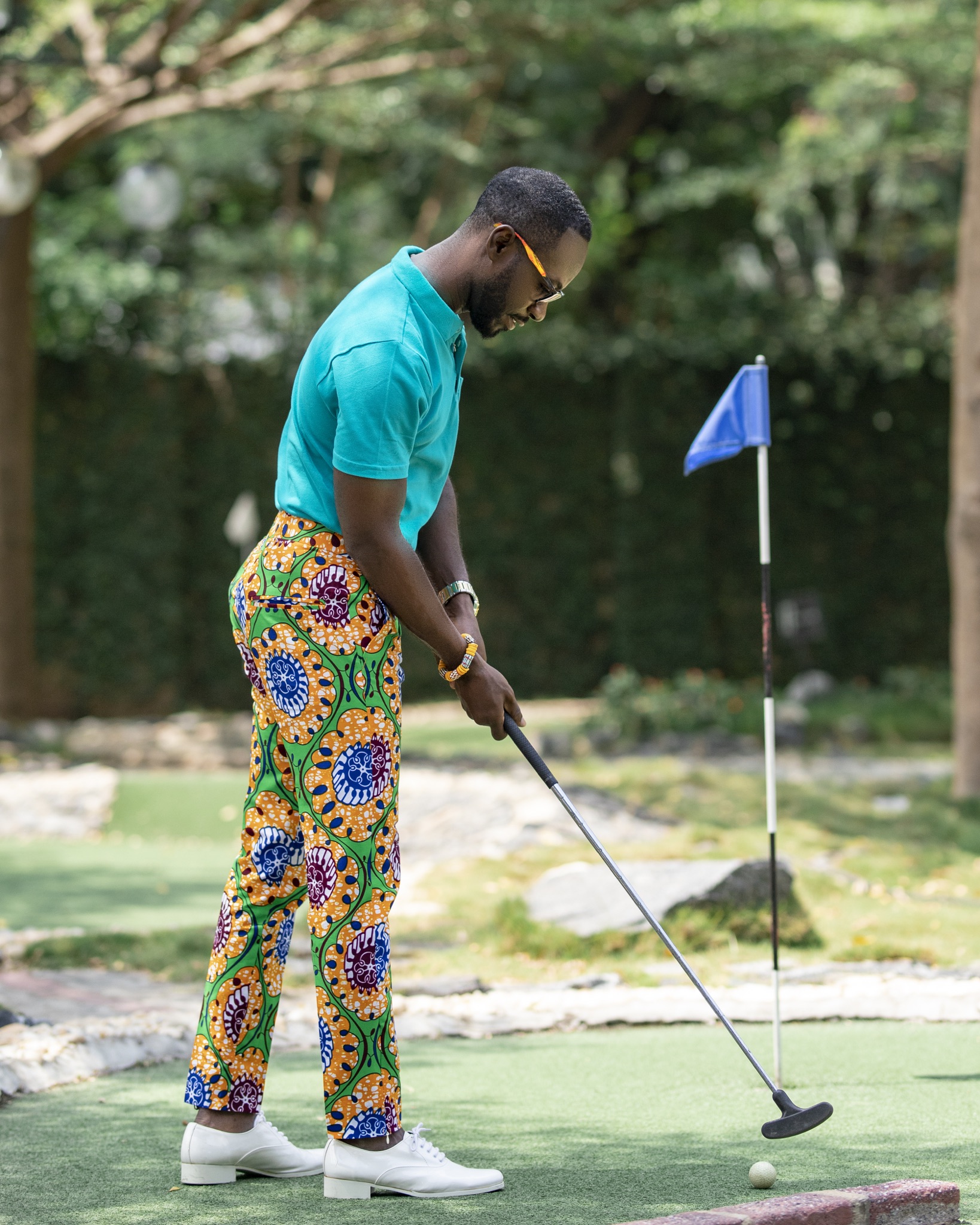
If you look at all my studio albums – I have nine – they have been about me. ‘Mr. Versatile’, ‘Bohy3 Ba’, ‘Manwensem’ but the last album, which was the ‘Made in Ghana’ album, was about Ghana because from the beginning, we have pushed the agenda that Okyeame Kwame can rap; people have heard it, they know it, they believe it. How is that affecting Ghana positively? We therefore embarked on a campaign to record 10 songs from 10 regions [as the regions were only ten at the time] featuring 10 top artists from each of the regions so that we show diversity and inclusion.
Being a purposeful artist helps. About 10 years ago, I started my Corporate Social Responsibility, which is the Hepatitis eradication drive under the Okyeame Kwame Foundation and every year, I give free Hepatitis B screening and vaccination to 1,000 people. If nothing at all, on July 28, the world remembers that there is the artiste Okyeame Kwame, who cares about the people. Purposefulness is very key. People support people who show them support.
B&FT: One would be tempted to think you were properly mentored and trained to achieve these heights. Is that the situation? Where did you get your mentorship and training from?
OK: I think that my first mentorship came from my immediate family, particularly my father. When my father was at the tertiary level of education, he could not afford to pay for his fees so he wrote a number of books, about six or eight. My father wrote books and in them were some amazing poems. There were also detective stories; he wrote on accounting, sociology and I think that was the first point of call. When he realised that I was interested in poetry, he would sit me down to talk about poetry.
The second one was my mother. She understood the psychology of nurturing a child and guiding that child to become what he or she wanted to become. My parents, in my opinion, were the first point of call. They stayed together, they did not get divorced. Even though they had many problems, they stayed together for the sake of the five of us. I get my idea of modalism from my parents.
Then, when I started rapping, I met a young man called Saint Kankam who had a diploma in Music from Winneba and I was about 17. He introduced me to music. I was already rapping but he introduced me to chords, melodies, progressions, ideas and philosophies of music. He introduced me to Highlife and I remember that when we were coming up, when we [with Okyeame Quophi] made our first album, Reggie Rockstone had released ‘Tsoboi’ which was Hip Hop music with Twi rap and had called it Hiplife but we were making Hiphop music with Highlife rhythms and we also called it Hip Life and that became extremely successful because Saint Kankam had introduced us to music. I think Saint Kankam did an amazing job.
The person who introduced me to rap music was called Lord Marcus. When I completed form five, because I was focused on rap and I was dyslexic, I failed every subject except Literature, Akan and another subject. I remember I went to him and I asked him to teach me how to rap and he said “bring your results” and when he saw my results, he said: “tweaa [an exclamation used to rubbish something], rap is for smart people” and he introduced me to KRS-1, Eric B and Rakim and I listened to their music and it was powerful, it was revolutionary.
Then I asked him how to become like them and he said if he was going to teach me to rap, every week, I would have to read one book. He would give me books by Hardley Chase and teach me a metaphor and ask me to go underline all the metaphors in the book in four days and bring it to him. Whilst I was preparing to retake my O-Levels, I was reading all these books – I had a room full of books and it opened my horizon because I could now travel business class, to see Paris and India and Kenya by just reading a book. I would say Lord Marcus, my parents, Saint Kankam introduced me to music. However, my academic knowledge in music was acquired at KNUST under the teachings of the legendary Dr. Daniel Amponsah also known as Agya Koo Nimo. He introduced me to the philosophy of African music and classical guitars.

There is someone else – Flash Junior. Where we lived, at Fante New Town, in Kumasi, at the ground floor of the house was a nightclub called Copa Cabana, where music was played from Thursday to Thursday because during the day, it was a restaurant and at night, it was a bar and a night club. I heard a lot of songs from Jazz to Salsa, Pachanga to Merenge, and I developed my catalogue of music from living in that house. I would say Kumasi, Fante New Town, and all the people around me made me who I am today. Flash Junior was the DJ at copa and he was prepared to answer all my questions about hit records he played.
B&FT: You created the brand ‘Okyeame Kwame’. Honestly, it is a successful brand and looking at some of the local and multinational companies and multilateral institutions you have worked with over the years, including MTN Ghana, GT Bank, Coca-Cola, Solidaridad, African Union, Ghana Education Service, WorldReader, Ghana Health Service, Ministry of Trade and Industry and UNICEF, how did you do it and how can people tap into your line of becoming a household name?
‘Guys next door’ image.
OK: The first time I heard of branding was in 1997, when Okraku Mantey said he was going to brand us (Akyeame) as the ‘guys next door’. At the time, most of the rappers had dreadlocks and wore baggy jeans but he did not want us doing same. He said, he would want it such that if a girl were to take us home to her father and introduce either of us as her boyfriend, her father would not exclaim and become worried. That was the imagination Mark and our producer, Andrew, had when they decided to build Akyeame and it worked.
The dissonance
Two years later, we went to the USA and saw people wearing baggy jeans, and we did same and started speaking ‘slangs’ on radio and people wondered if we were the same Kumasi boys who wore Kente and rapped over traditional music. Our second album sold, perhaps, 500,000 copies in cassettes and CDs. But the album after that sold less than 5,000 copies because we reintroduced baggy jeans and ‘akata’ into our image. It failed woefully. At the time I didn’t know the cause of the failure but after I went to business school years later, that was when I realised that we had created dissonance and alienated ourselves from the fan-base that Mark had created for us as the boys next door.
Becoming absolutely brand conscious
I became absolutely brand conscious about 11 years ago, when my wife joined my team with her knowledge and expertise. When she joined, she was saying we needed to tell the brand story; we needed to fix the brand image, look at brand positioning and associations, we need to look at brand relevance. She brought these concepts up and started saying that in the final analysis of branding, what we say and what we do is not the same as who we are. This is a quote from MTN’s Brands Manager, Eli Kpodo: “How do we extract from this whole façade, who you truly are; the man I fell in love with, how do we get all of Ghana to fall in love with you like I have?” It is by being ‘stripped naked’ for people to see me as I am.
A SWOT analysis was conducted and they realised that I am friendly, talkative and poetic. The same friendliness was also identified as a weakness, because I am almost always available and people will not pay the right price for my services. Despite the weakness, we still built Okyeame Kwame as a friendly, entertaining rapper. The strategy was to use my image, front liners, my sound, my creativity, my honest interviews, my story and associations to endear me to people who wish to be associated with a friendly, gentle and a high performing professional musician.

The Rap Dacta + Hepatitis B campaigns, corporate social responsibility.
When I started calling myself the Rap Dacta, she came up with the idea of Hepatitis B activations to cement the ‘doctor’ tag and the fact that if you support Okyeame Kwame and buy his records, he will give some back in the form of health advocacy. That quickly opened the grounds for me to win Artiste of the Year in 2009. Everything that we have been doing has been intentional and we keep evolving.
Mr. Versatile
Along the way, there was brand and audience fatigue, we decided to introduce something fresh, which was the Mr. Versatile Show. The Mr. Versatile Show was an album that incorporated poetry, drama, comedy and dance on one stage. That truly created a new reality for my audience.
With that, I became known as ‘Mr. Versatile’ but then my team, again, realised that I am growing older and as a husband and a father who collaborates with the United Nations and other bodies, how do we reposition the brand? Going back to the drawing board, we changed the brand direction from a creative, versatile person to a creative, inspiring guy.
Becoming different again
To us, there are so many other amazing rappers – Sarkodie, E.L, Joey B, Flow King Stone etc – how do we position you to be different from them? We went back to the Kente again, using the philosophy of our tradition and the elements of our culture. We did that to show that Okyeame Kwame is a rapper but he is a different rapper. I remember at the time, our tag line was ‘value your values’.
There was the need for the creative and inspiring musician because I have been married for a while and have children and a lot of progressive young people were looking up to me for lifestyle and that is why we chose to promote family values, as that is what almost everyone desires to become. We combined elements of inspiring family man with creativity in my videos and the differentiation became crystalized. Since then, my brand resonates with most who love family.
A brand manual
If you have paid attention to my logo, it is a simple OK with a kente tie. The kente represents culture and the tie represents a gentleman. The logo says meet Okyeame Kwame the cultured gentleman. Three years ago, we wrote a manual on how to deal with the Okyeame Kwame brand and in that manual, we made a conscious effort to specify the brand direction. The colours, the reason behind the logo and its appropriate use, the direction and composition, the style and positioning and even added a set of dos and don’ts.
Some of the don’ts include:
- Okyeame Kwame would not objectify women in his music videos
- Okyeame Kwame would not promote violence.
All these were done to show that I was different. The dos are:
- Okyeame Kwame is interested in development
- Okyeame Kwame is inspiring
- He is concerned about the education of children
With these dos I became the UNICEF Dad for 2017 along with David Beckham and Hugh Jackman. I think the big idea is to find the balance between who you truly are and what is valuable for your customers. Being yourself means, looking at the competition but not starring.
B&FT: Wooow!!! That is impressive. With all these experience and knowledge acquired along the way, you do stand in a great position to advice upcoming artistes, small businesses and even offer nuggets to big businesses. Let us first start with the advice to local start-ups about brand positioning.
OK: When I was growing up, my mother would buy ‘alata samina’ for me to take to school. It had no proper packaging yet I liked alata samina because it was potent. Every product has two elements: functional, which is built on its potency and emotive, which is built on equity. If you are a young business and you want to build a brand that will stand the test of time, make sure that the product does what it says it will do.
Promise what you can deliver.
If you are a business and you say you are selling the best powdered soap, once you use the word ‘best’, make sure that it is better than the gold standards and if it is not better, don’t add ‘best’ to the packaging because consumers are going to hold you to the brand promise – whether the product works or doesn’t. Don’t have grandiose ideas about your products when you cannot meet them. Just start small.
Take advantage of feedback
Secondly, whenever you take your products to the market, and people give feedback by buying or not buying, do not think that people do not know what they want. Any feedback, whether the product is being patronised or not, use it to good effect. Organise research, get some persons to conduct a survey of your product, ask about the competition and how it is faring. Based on that, create, improve or price your products to be able to compete.
Pricing is key
For positioning, pricing is key. If you are selling an ostentatious product, like rap music, the higher the price, the better. If you are selling a personality brand and you have to entertain, make sure that when people pay money to see you, you deliver. Whatever your product promises, deliver. Once you deliver, the people will begin to have an emotional connection to your product and that will become your brand equity because equity is from the people.be conscious of your equity and price accordingly. If you are not a market leader, consider competitive pricing. Price a little lower than your competitors as an entry strategy and give more value.

Carving a niche
To carve a niche depends on how much energy your product has. If you are a small business making kaftans and there are people already in the industry, and you decide to segment a certain core market to reach out to, it is a great idea. But if you have the potency, you can produce to meet the mass market demands, produce, because in business the margins are on the economies of scale; the more you produce, the lower your average cost. Therefore, you can lower your price and reach out to a lot of people. However, if you do not have such capacity but you have specialized skills, then it will be wise to produce for a small segment and charge a premium.
Whether you are creating a niche product or you should mass produce depends on who you are, what you can give, and even where you are on the product development curve. Niche market is easier to manage, but do not forget that people with disposable income also have a choice so I think that it can’t be put in a strait jacket. You need to decide based on your specialty, resources and the market demand and preferences.
B&FT: How about the big businesses which are already established brands? What can you tell them to do differently to continue to stand out?
OK: To the big businesses, the best they can always do is listen to the market and the masses at all times. Strategically, most of them know what they are doing and have actually been doing it for a long time but that one thing which will destroy your brand equity is a slight dissatisfaction that you didn’t pay attention to. Please listen to any and every disaffection, no matter how small a customer or consumer is and periodically organise market researches and surveys to find out if your product is still resonating with the audience sorry in the market.
Another thing I want to tell big business is that they should show leadership. They make a lot of money. Put some of that money in areas where the same people who buy your products suffer. Put some of the money in cleaning up Ghana, put some into educating young brilliant but poor children, put some of this money in supporting young businesses, consider backward integrations, put some resources into making more key distributors, give them credit.
Once the base is strong, the apex will continue to go high. Put some of the money in the arts too, because once we become successful, then you can have more brand ambassadors, you pay us well, we speak for your brand and everyone is happy.

Made in Ghana, Kente & AfCFTA
B&FT: Okyeame, you have been one of the biggest promoters of culture, especially with your Made in Ghana album. When I look on your Social Media, I see a lot of Kente and others. With AfCFTA how can creatives take advantage to portray our culture to the world?
OK: A man’s wealth is in his culture. First of all, how can we portray our culture in our creative space so that we can improve the quality of the image of Ghana? Government must become intentional about getting young people to see culture as recurring patterns and not peer pressure from dead people. When some people think of culture, they think of pressure – pour libation, get married by a certain age, etc.
I think it is important that the ministry responsible for culture will find a way to make culture easy on the minds of people because, once that happens, we develop an appreciation for the language, artefacts and even taboos. That way we appreciate the significance of the symbols in Adinkra, in Kente, because, if we are not intentional about it, then, judging from how the proliferation of international and social media, satellite television, among others, are able to get into the minds of the youth, our tradition and culture will suffer. I think the ministry must make a conscious effort to first, infiltrate the minds of young people as well in a nice way and by getting involved in things like music awards schemes.
For example, the most culturally vibrant artiste gets to perform at all national days internationally, using the Foreign Missions, because it is important to tell our stories to the international audience.
Also, young people must know that we can’t compete by imitation. When we have imitated something, there is no way we can compete with the one that made the original. I don’t think anybody in the world can come to Ghana to shoot a Komfo Anokye movie better than someone from Asankraguaa or better than a Ghanaian. We need to tell our story using the elements around us and we have to be intentional about it. We have to identify with ourselves as ourselves and express ourselves as ourselves, because once it happens like that, everywhere you go, you standout and that is what branding is about.
Speaking as an artist to fellow artists
B&FT: Should creatives only ‘follow their passion’ or treat their craft as a business?
OK: The music industry in Africa is very tough because of a lack of structures and the over dependence on residual income. People must eat, go to the hospital, buy clothes to wear, and satisfy some basic needs before they think about going to see a performance or buy a piece of art. When the entire economy of the people is about subsistence, it is very difficult for those people to enjoy art. In the same way Karl Marx said, “you can’t enjoy art unless you learn to feed and clothe yourself.” When a person is hungry, it will be almost impossible for them to enjoy the sunset but it is when you have some food in your stomach that you can see a blossoming flower.
The economy of the creative arts is tied to the macro economy of any country and since we know that we barely create anything for export and we import everything, it makes it difficult locally for artists to get brand ambassadorship roles.
But in the USA, for example, Nike is made in America and whenever they want to work with an artiste, they can get Kanye West to bring his creativity and popularity. It is a big bang and Kanye becomes a billionaire. But there are only few companies in Ghana who are making profit enough to embark on such associations.
For the art and creative space to work, one, the economy must work. The artiste must have complete overview of where he finds himself. Yes, you are driven by passion but you get to a point where reality hits you. You have recorded two singles, they are both hits, COVID is here, you are not playing shows, how do you turn around, how do you make money? It is then important for the artiste to try and learn and hone some of the business skills that the market woman has so that he will be able to deal with the financial aspect of his creativity properly. Do not forget that business development managers do not wish to work in ill structured industries. The artist must be financially literate too.
Another way artistes can make money is to speak to investors. There is nothing wrong with an artiste who has GH¢10,000 walking to his bank to see the manager to ask what can be done with the GH¢10,000.
Another thing that is helping artistes nowadays is social media. Because we are creative and people are interested in the way we live and the creative thoughts in our heads, an artiste can easily open a YouTube channel. If it is difficult for an artiste to make money from performances, he could use this medium to, expand his scope. Artistes – musicians, photographers, videographers, fashion designers etc – who are finding it difficult to establish yourself as an artiste, could try a reality show or YouTube based on their talents.
On Instagram and Facebook, if you are famous, you will have many followers, the question then becomes, how can that be monetized? How do you leverage those numbers with brands so that you will be paid some good money to post one advert? Simple, by keeping your page clean and organised and ensure that the brand story is told, your equity is intact by living a good life and getting to a point where people will like to associate with you. If you cannot afford a social media manager, you can learn to manage it effectively yourself. No matter how small your numbers are, if you are organic and interesting, people will use you as an influencer and you will make some money. With passion, an artist displays vibrancy, but the combination of passion, knowledge of trade and financial literacy creates a complete artiste who is ready for the show and ready for the business.

Diversification
I also think diversification is important. For example, I have been selling hair extensions made in Ghana i.e. – Sante’s Hair – for about two years now and the success of that hair has been because I am Okyeame Kwame and I have already amassed a lot of following on social media. With COVID-19 still ravaging, it is this hair business that is sustaining my family and I. If we had not diversified and were waiting for someone to call us to come and perform what would we have done?
Positioning
Also, you need to find a way to position yourself to receive businesses. There are two factors we need to consider with positioning; there is the push and the pull. You need to get business development managers, who are writing letters, visiting corporate, visiting government, smiling at the customers, building relationships, correcting mistakes, finding a way to organise your funds, developing your fan-base and all that so that you will be seen to be ready for short and long term engagements.
And then, there is also the pull, which is taking the right pitches, speaking the right languages, standing with the right crowd, taking photos with the right people to the point that people will see that if they associate with this artiste, they are going to be able to get value and they can leverage on their equity and when it happens like that, even if you are not pushing enough, your position will be pulling enough for you to survive. Understanding the psycography, sociography, geography and the economic activities of your target market will help you to position where you visible. To become premium preferred, you need to know what your target market is thinking about and what their hidden needs are.

B&FT: We just spoke about diversification, positioning yourself and always being in tune with the time. You are writing a book with your wife, does this fall in line with diversification or creating a fresh chapter? While at it, tell us about the book.
The book is titled ‘Love Lockdown’. We wrote the book during the lockdown. We have been speaking about writing a book for about four years now and during the lockdown we said ‘let us write the book’. Some of the ideas were fragmented but we decided to consolidate them. In the book, we discussed finding and maintaining a lasting-loving relationship.
The book speaks to young people on how to find the right person, how to ask the right questions, and how to identify who is a possible long term partner. After every major chapter, there is a worksheet that yourself and your partner will fill to find out if you should continue or not. As a 2-in-1 book, the second part is about getting married, staying married and keeping it spicy. We talk about sex, romance, and intimacy and then we also look at the idea of religion, the pressures of religion, and culture on modern marriages.
B&FT: Okyeame, we have heard a lot about love/business partnerships and most of what we hear tends to be negative in the long run. But in your case, it seems to be quite the opposite, how are you able to separate business from your love life?
OK: In my house, we don’t have ‘arguments’, we have discussions and in discussions, all of us are supposed to hear and be heard out without screaming and whoever has the best logic takes the day. At home, we do not have a superior-subordinate relationship, we are both equal. It is not very smart if you are married to a paediatrician and because you are the man and have been told to lead, when the children are sick, you go ahead to prescribe medication because you do not want a woman to lead you.
There are so many things my wife is able to do better than me. She is emotionally stronger than I am and she has a lot of knowledge about branding. Her finishing is exquisite, when she chooses my clothes I get more admiration from female fans, so I let her lead in all these places. I think our partnership is working because of mutual respect, honesty, knowledge about the things we want to do. And with the things we don’t know, we investigate and research before we decide to take that path. Notwithstanding, there are a lot of conflicts that we have on a daily basis.

B&FT: Your current single, ‘Yee ko’ is topping the charts and the video is quite unique, how did you come up with it?
OK: You know that last year was really tough because we just woke up and COVID-19 was here. We thought it was in faraway China but we did not know that when a butterfly flaps its wings in my village, the wind direction changes in the whole world. When COVID-19 arrived, we were not prepared for it. Last year, all of us were fighting – we were fighting COVID-19, poverty, anxiety, depression.
I reached out to Kuami Eugene, with a first draft and with his expertise, today we have a hit. I went to his home studio and in about 30 minutes, we were done with the song. Kuami Eugene had creative leadership on the entire process. He produced the beat, he co-wrote the song, even with my lyrics, he would tell me to make adjustments for ‘modern times’ – put this one here and that there, raise the pitch at this point and lower it at another. I give the success of this song to Kuami, as it was almost entirely his idea, I brought my experience but he had creative leadership.
But there has been a certain level of love that has existed between Kuami and myself from the days of MTN ‘Hitmaker’ when I was a judge and he was a contestant. We fell in love immediately and I think when I was his age, if I had a more experienced artiste to hold my hand and show me where not to step, I think I would have been way ahead. I am trying my best to give that to Kuami and by giving him that, he blessed me with ‘Yee ko’.
B&FT: That points to a lot of humility and I doubt many experienced and older artistes would admit to this. On that note, what is your advice to artistes with experience, who are trying to bounce back in to the limelight?
OK: Creativity is tied to ethos, ego, personality and possession – my song, my art. It is not yours, you are just a vessel that the universe is sending a signal through. If you see it like that, you would not be attached to any concept, idea or philosophy that you have created, to the point that if it is not viable and people tell you, you still go ahead and throw away resources.
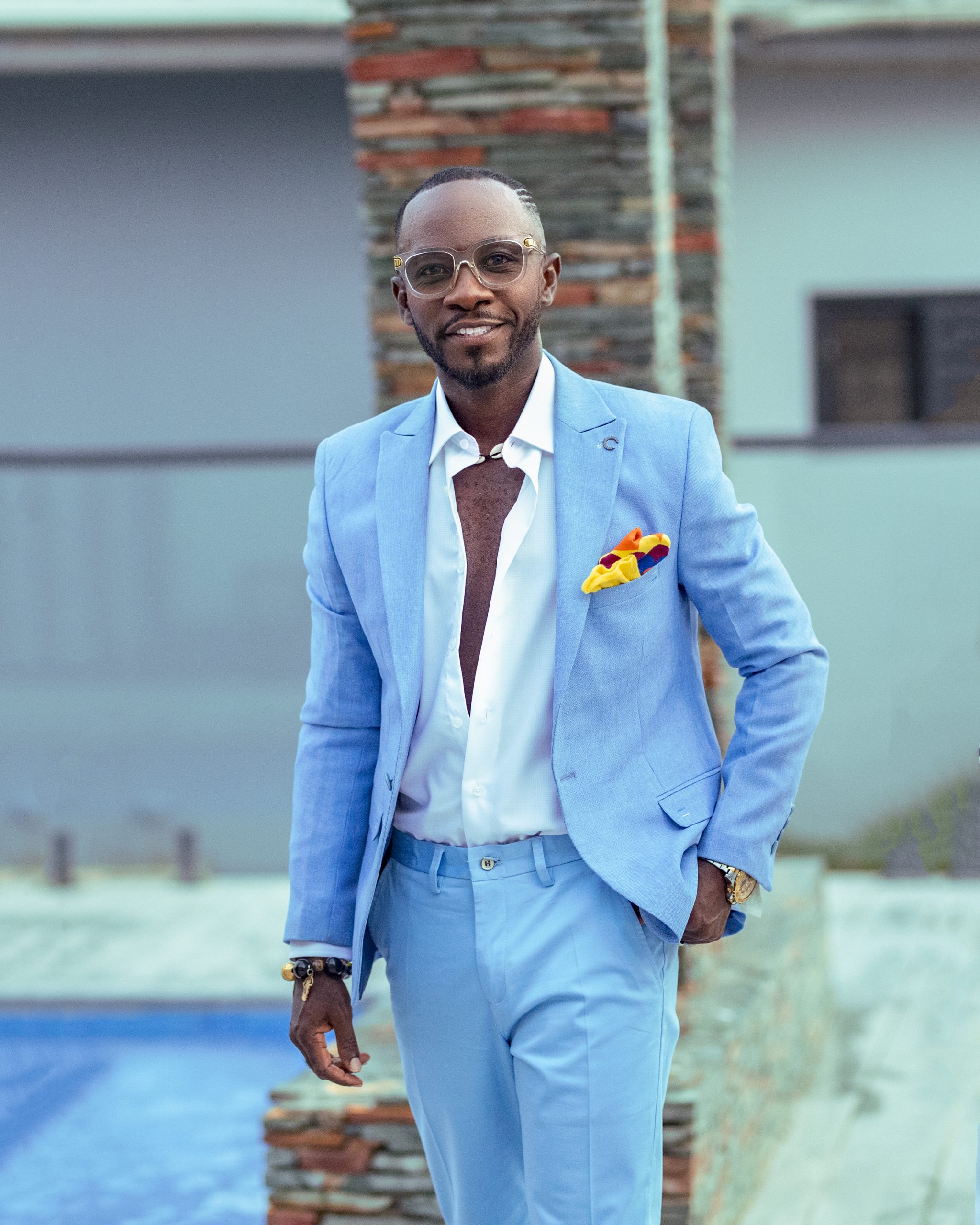
If you begin to see yourself, not as special, but as different, then you will have a much better contribution to society. You have to humble yourself, as I have not seen any artiste, who is arrogant and has been able to sustain his career for over five years because the average lifespan for an artiste’s career is two albums and three years but if you are humble, someone will tell you something that you can use to get the next big thing, someone who will hold your hand, someone who will tell you where you are going is dangerous, especially if you position yourself as pleasant enough to hear.
Final words
The whole conversation has been about building social capital. Social capital is about honesty, vibrancy and it is through experience. Whatever business that you are beginning – be it a rapper or making clothes, or selling shea butter, don’t be afraid to try. Always ask, people can only say no and do not be afraid to experience life. Go out there and let people experience your product and when they give you feedback, please take it in good faith and go and re-engineer the technology of whatever it is that you are doing. I know that the quality of a business is not based on its ability to stand for a long time but it is based on its ability to rise after a big fall.





